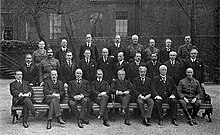
David Lloyd George, 1st Earl Lloyd-George of Dwyfor, was Prime Minister of the United Kingdom from 1916 to 1922. A Liberal Party politician from Wales, he was known for leading the United Kingdom during the First World War, for social-reform policies, for his role in the Paris Peace Conference, and for negotiating the establishment of the Irish Free State. He was the last Liberal Party prime minister; the party fell into third-party status shortly after the end of his premiership.

Herbert Henry Asquith, 1st Earl of Oxford and Asquith,, generally known as H. H. Asquith, was a British politician and statesman who served as Prime Minister of the United Kingdom from 1908 to 1916. He was the last Liberal Party prime minister to command a majority government, and the most recent Liberal to have served as Leader of the Opposition. He played a major role in the design and passage of major liberal legislation and a reduction of the power of the House of Lords. In August 1914, Asquith took Great Britain and the British Empire into the First World War. During 1915, his government was vigorously attacked for a shortage of munitions and the failure of the Gallipoli Campaign. He formed a coalition government with other parties but failed to satisfy critics, was forced to resign in December 1916 and never regained power.

George Nathaniel Curzon, 1st Marquess Curzon of Kedleston,, styled Lord Curzon of Kedleston between 1898 and 1911 and then Earl Curzon of Kedleston between 1911 and 1921, was a British statesman, Conservative politician and writer who served as Viceroy of India from 1899 to 1905. From 1919 to 1924 he served as Secretary of State for Foreign Affairs.

Andrew Bonar Law, PC was a British statesman and Conservative politician who served as Prime Minister of the United Kingdom from October 1922 to May 1923.
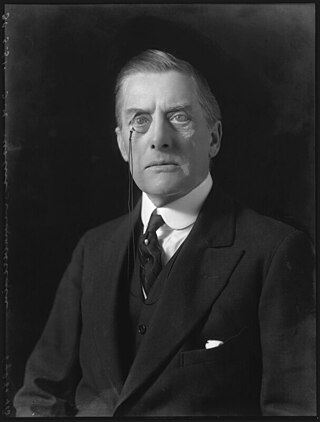
Sir Joseph Austen Chamberlain was a British statesman, son of Joseph Chamberlain and older half-brother of Prime Minister Neville Chamberlain. He served as Chancellor of the Exchequer (twice) and was briefly Conservative Party leader before serving as Foreign Secretary.
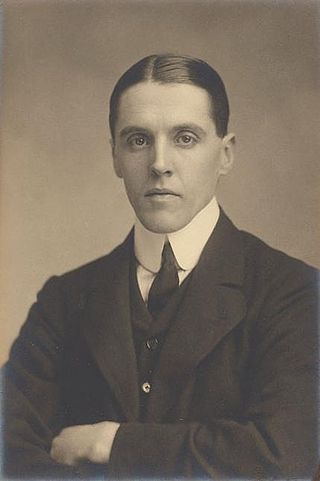
Frederick Edwin Smith, 1st Earl of Birkenhead, was a British Conservative politician and barrister who attained high office in the early 20th century, in particular as Lord High Chancellor of Great Britain. He was a skilled orator, noted for his staunch opposition to Irish nationalism, his wit, pugnacious views, and hard living and drinking. He is perhaps best remembered today as Winston Churchill's greatest personal and political friend until Birkenhead's death aged 58 from pneumonia caused by cirrhosis of the liver.
A war cabinet is a committee formed by a government in a time of war to efficiently and effectively conduct that war. It is usually a subset of the full executive cabinet of ministers, although it is quite common for a war cabinet to have senior military officers and opposition politicians as members.
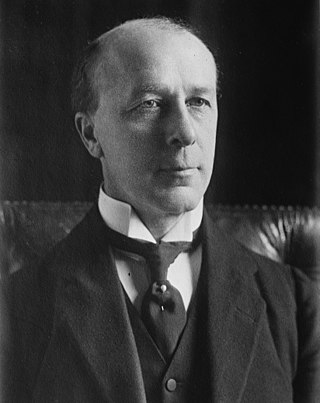
Reginald McKenna was a British banker and Liberal politician. His first Cabinet post under Henry Campbell-Bannerman was as President of the Board of Education, after which he served as First Lord of the Admiralty. His most important roles were as Home Secretary and Chancellor of the Exchequer during the premiership of H. H. Asquith. He was studious and meticulous, noted for his attention to detail, but also for being bureaucratic and partisan.

Alfred Milner, 1st Viscount Milner, was a British statesman and colonial administrator who played a role in the formulation of British foreign and domestic policy between the mid-1890s and early 1920s. From December 1916 to November 1918, he was one of the most important members of Prime Minister David Lloyd George's War Cabinet.
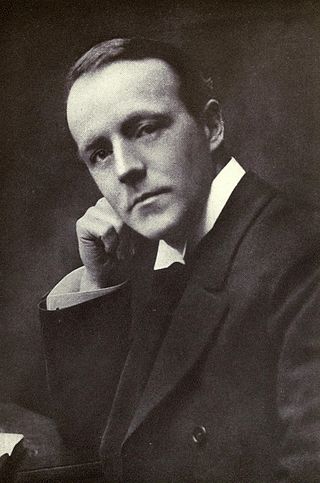
Walter Runciman, 1st Viscount Runciman of Doxford, was a prominent Liberal and later National Liberal politician in the United Kingdom. His 1938 diplomatic mission to Czechoslovakia was key to the enactment of the British policy of appeasement of Nazi Germany preceding the Second World War.
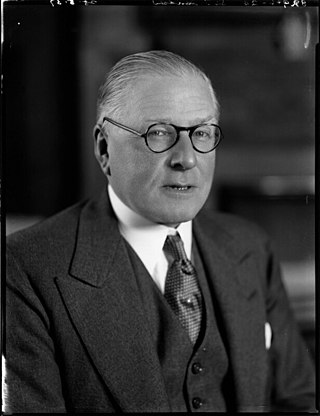
John Colin Campbell Davidson, 1st Viscount Davidson,, known before his elevation to the peerage as J. C. C. Davidson, was a British civil servant and Conservative Party politician, best known for his close alliance with Stanley Baldwin. Initially a civil servant, Davidson was private secretary to Bonar Law between 1915 and 1920. After entering parliament in 1920, he served under Baldwin as Chancellor of the Duchy of Lancaster between 1923 and 1924 and as Parliamentary and Financial Secretary to the Admiralty between 1924 and 1926. From 1926 to 1930 he was Chairman of the Conservative Party. He was once again Chancellor of the Duchy of Lancaster between 1931 and 1937, firstly under Ramsay MacDonald and from 1935 onwards under Baldwin. On Baldwin's retirement in 1937, Davidson left the House of Commons and was ennobled as Viscount Davidson. Despite being only 48, he never took any further active part in politics. His wife Frances, Viscountess Davidson, succeeded him as MP for Hemel Hempstead. Lord Davidson died in London in 1970.
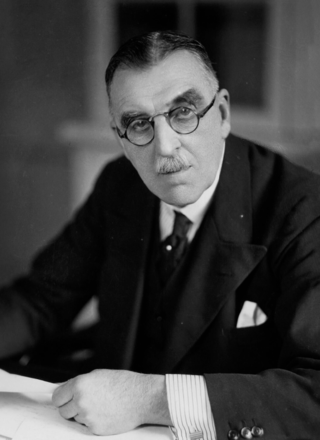
Sir Arthur Sackville Trevor Griffith-Boscawen PC was a British politician in the Conservative Party whose career was cut short by losing a string of Parliamentary elections.

The National Government of 1937–1939 was formed by Neville Chamberlain on his appointment as Prime Minister of the United Kingdom by King George VI. He succeeded Stanley Baldwin, who announced his resignation following the coronation of the King and Queen in May 1937.

Neville Chamberlain formed the Chamberlain war ministry in 1939 after declaring war on Germany. Chamberlain led the country for the first eight months of the Second World War, until the Norway Debate in Parliament led Chamberlain to resign and Winston Churchill to form a new ministry.
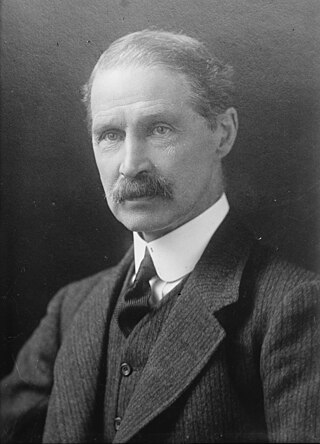
The Conservative Government of the United Kingdom that began in 1922 and ended in 1924 consisted of two ministries: the Law ministry and then the first Baldwin ministry.

Stanley Baldwin of the Conservative Party formed the second Baldwin ministry upon his reappointment as Prime Minister of the United Kingdom by King George V after the 1924 general election. His second ministry ended following the so-called "Flapper Election" of May 1929.
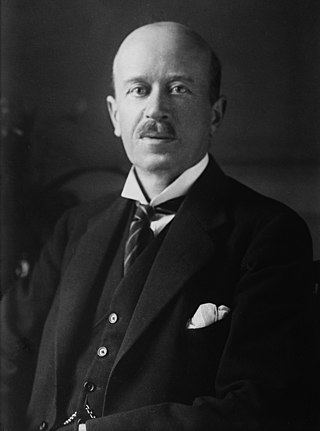
Sir Worthington Laming Worthington-Evans, 1st Baronet, was a British Conservative politician.

The Liberal government of the United Kingdom of Great Britain and Ireland that began in 1905 and ended in 1915 consisted of two ministries: the first led by Henry Campbell-Bannerman and the final three by H. H. Asquith.

Statesmen of World War I is an oil on canvas painting by Sir James Guthrie, completed in 1930, shortly before Guthrie's death. It was commissioned by South African financier Sir Abraham Bailey, 1st Baronet to commemorate the politicians and statesmen of Britain and its Dominions who held office during the First World War. It was donated to the National Portrait Gallery in 1930, shortly after it was completed.
The Eastern Committee (EC) was an interdepartmental committee of the War Cabinet of the British Government, created towards the end of World War I. Its function was to formulate a coherent Middle East policy, resolving conflicting visions of involved departments. Its creation was approved by the War Cabinet on 11 March 1918 and it held its first of 49 meetings on 28 March 1918.


